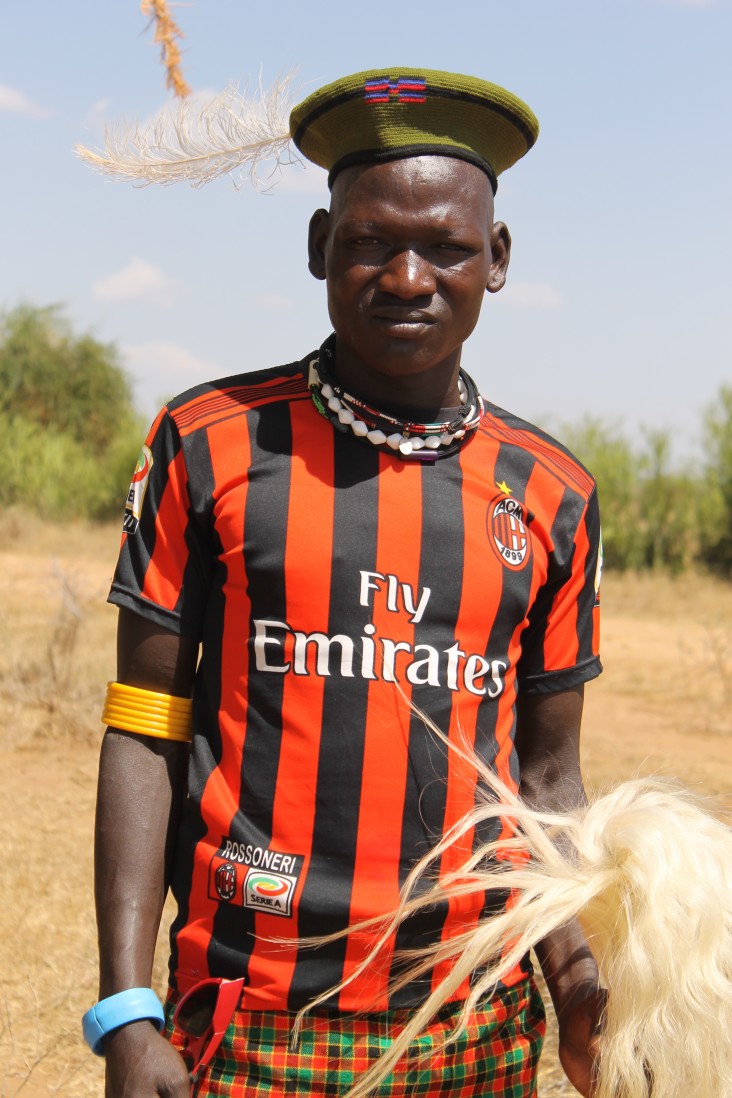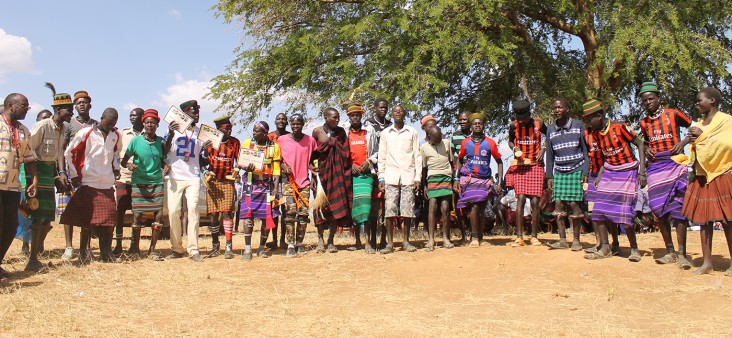Speeches Shim

Text by Anna-Maija Mattila-Litvak
A group of men wearing beads and colorful hats were gathered on a dusty plain of Karamoja, a remote region in Eastern Uganda, to do what they had thought they would never do – make peace.
Sitting under the shade of an acacia tree, these pastoralist former warriors were sharing their experiences of leaving behind a life of violence and their plans for a more peaceful future. They had completed a six-month-long course in trauma healing and peaceful coexistence through the USAID-funded Securing Peace, Promoting Prosperity (Ekisil) project and were about to receive their first-ever certificate of recognition.
For decades Karamoja was a site of a brutal conflict between tribes who fought over land, raided cattle, and revenged the thefts with violence and sometimes death. Although the Ugandan government has successfully campaigned to disarm tribes since 2001, sporadic cattle raiding continues to ignite anger and periodic violence.
“I was a bad enemy,” said 28-year-old Aviny Lochio, a Jie, who for 17 years fought neighboring tribes and looted their animals. Wearing fashionable sunglasses and a soccer shirt, he represents a new generation of Jie, but traditions still hold tight. For the Jie and neighboring tribes, cattle herding is a way of life and key source of income. The size of the herd is a sign of wealth, which over time became a reason for looting other tribes’ cattle. This and an ongoing conflict over land and water led to a longstanding cycle of violence and bloodshed in Karamoja.
After years of fighting, Aviny Lochio had had enough. “When I saw one of my brothers getting killed, that changed me,” said Aviny. “I kept thinking about my brother and realized that I too would be killed, if I continued.” While Aviny was still mourning his brother, another of his friends was killed in a raid. “So, I told my friends, ‘why don’t we leave this way of life’.” But, many of the warriors didn’t know how they would earn their living.
Through the Ekisil project, Aviny and his fellow warriors found a way to build foundations for a new life. “During the program, I learned how to get away from the cycle of violence and I started to recover from the trauma caused by my experiences,” he said. He also gained new skills to earn income, including knitting. The colorful knitted hats Karamojong men are sporting around testify to Aviny and other former warriors’ entrepreneurship. “After I sold my first hat, I was able to buy a goat!” he described proudly.

Aviny understands the multiple obstacles the former warriors face. “I would like to teach others,” he said. As a father of three children, he feels the responsibility of creating peace also at home. “When I am sitting with my friends in the village, I tell them to reduce alcohol consumption because it leads to beating their wives.”
While some of the reasons for the conflict between the tribes are yet to be resolved, the graduates of the USAID program have learned that peace starts with oneself. That’s what Aviny and other former warriors pledged to, as they accepted their certificates of completion under the shade of the acacia tree.
So far, the USAID activity has trained 215 former warriors in peaceful coexistence and reconciliation in Karamoja, contributing to stability and improving long-term economic well-being of the communities.

Comment
Make a general inquiry or suggest an improvement.